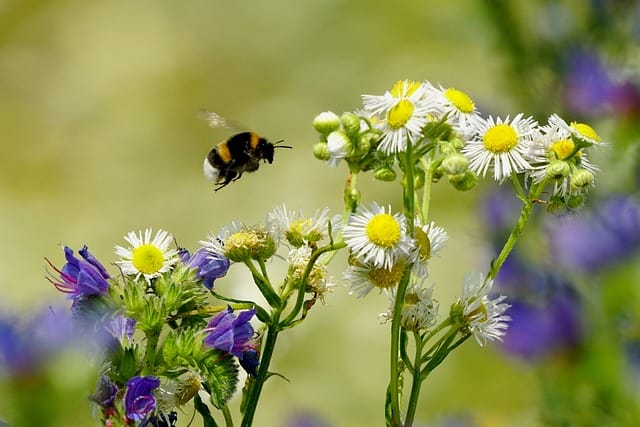
Thanet councillors have raised concerns over use in the district of weedkiller containing glyphosates.
Councillors Becky Wing and Barry Manners have questioned the use of the herbicide which some studies have labelled as a probable carcinogen while others say the product, most commonly known as RoundUp, is toxic to fish and birds and can kill beneficial insects and soil organisms that maintain ecological balance.
The European Chemicals Agency however, says there is no reason to classify it as a carcinogen and it is approved for use by the Health and Safety Executive (HSE) as safe to its users and the public, and for use on the public highway.
Cllrs Wing and Manners say they are alarmed the spray was used by the perimeter of Foreness Point and The Ridings.
Foreness Point is being turned into a wildflower rich habitat area for pollinators, birds and other wildlife. The chalk grassland was designated a Local Wildlife Site in 2009 and was part of a biodiversity project called Making a Buzz for the Coast, in collaboration with the Bumblebee Conservation Trust between 2017 and 2021.
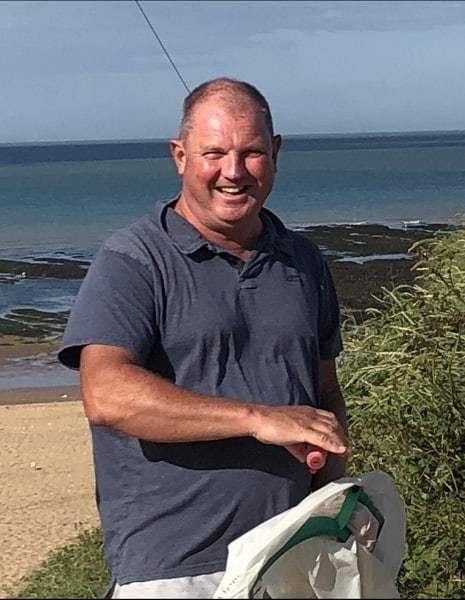
Cllr Manners said: “The Ridings is a nationally significant bio-diverse open clifftop space. It has been carefully managed by Thanet council to provide an increasingly scarce habitat for bees and other endangered pollinators.
“Local residents are naturally protective of this wildlife and tourism asset. I am appalled that Kent County Council is spraying glyphosate along its perimeter – or anywhere else for that matter when there are proven alternatives.
“Residents have a right to be angry. Somewhere close to £200,000 of public and grant money has been spent in recent years to develop the very biodiversity that glyphosates destroy.”
‘Diluted’
KCC says the glyphosate it uses is diluted with water and is the most commonly used weedkiller for public areas. The authority says it does not use neonicotinoids, which are insecticides with identified risks to bees, and only highway/path areas are treated by the authority with no Thanet council sites, such as the wildlife area at Foreness, coming under their contractor’s remit.
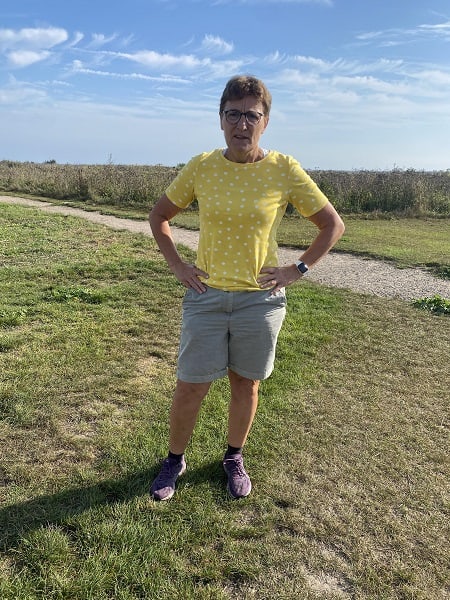
Cllr Wing says she is “shocked” that glyphosate may have been used near The Ridings, adding: “This is a strip of considerable ecological importance that sits next to an SSSI (Site of Special Scientific Importance), it is also part of Kent’s Bee Plan. I am at a loss as to understand how this could have happened, given Kent’s recent national award for its Pollinator Action Plan; Kent’s Plan Bee.
“Workers were also spotted last April in Ramsgate and over the last few weeks and according to KCC’s own website they still use weed killer containing glyphosates and there appears to be no clear rational for its use.
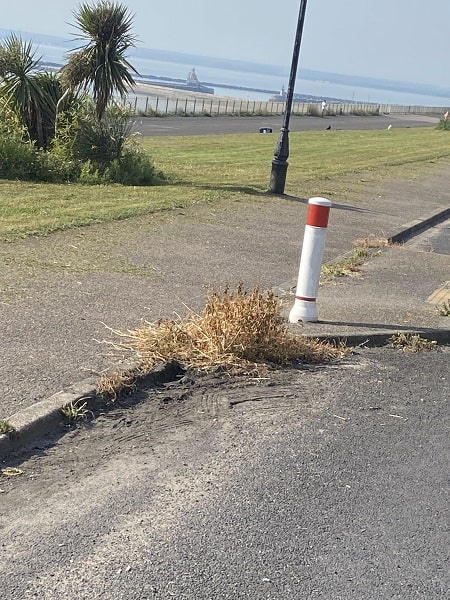
“For example, to reduce weeds creating trip hazards or causing structural issues to buildings, walls and other structures, indeed, armed with a rough map as witnessed, they appear to just spray. This process should be followed by district councils removing dead weeds, but this simply does not happen in most places and so the net result is a greater build up of weeds and so increased use of glyphosate.
“There seems to be no ‘joined up thinking or doing’ between county and district councils and certainly no discussion with councillors or more importantly the wider public, who have no choice in the use of it around their homes or within their community, without warning.”
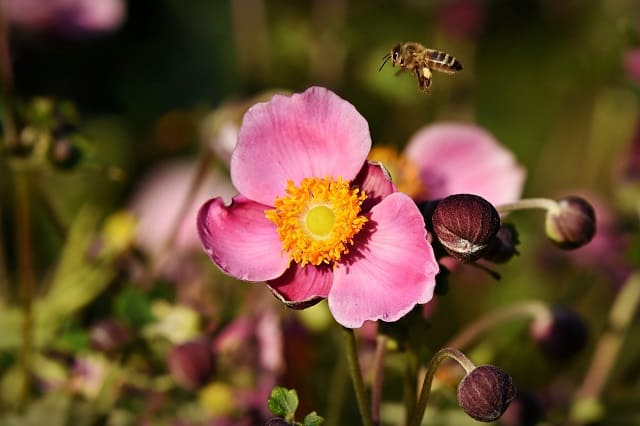
Cllr Wing says KCC should be recognised for its work on the pollinator action plan which aims to improve the food sources and general habitat for pollinators such as bees, wasps, butterflies, moths and hoverflies.
But, she says, glyphosate is known to affect pollinators, in particular bees where it directly impacts a colony’s potential to survive.
She added: “We really do need to re-think the use of this weed killer in terms of, is it necessary and if so where and why, can other approaches work and (there needs to be) better co-ordination and pooling of resources between town, district and county councils.”
Cllr Wing has submitted a Freedom of Information Request to KCC about the issue and will be asking a question at Thanet council’s full meeting in October about the district’s possible use of weedkiller containing glyphosate.
She added: “I have also written to KCC Cllr Sean Holden and Susan Carey, who have led on Kent’s Pollinator Action Plan, to express my dismay at the continued widespread use of weed killer with glyphosate and to ask for support.”
‘Spot checks’
A KCC spokesperson said: “All operatives are required to be competent in the application of herbicide and follow the necessary industry guidance.
“We also carry out spot checks to ensure that standards are being met and investigate any issues raised by the public with the contractors involved.”
Biodiversity at Foreness Point
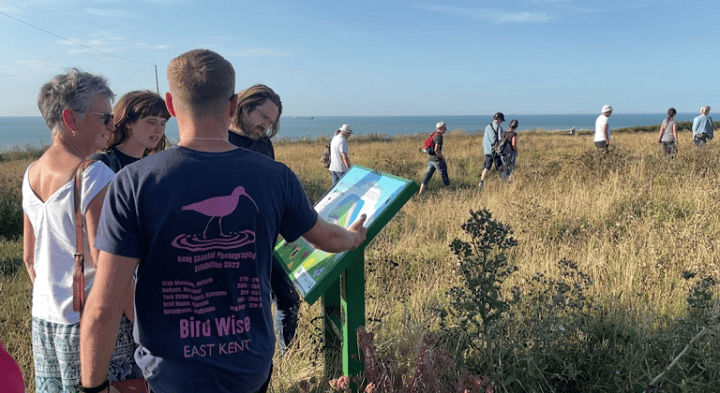
Last month Thanet council’s Climate Change team hosted the two interactive sessions in partnership with the Bumblebee Conservation Trust, at the Margate location, with a focus on biodiversity and bees.
Attended by community group representatives, local residents and ward councillors, the free events provided an opportunity for people to engage with nature and expand their understanding of local wildlife.
The biodiversity walk led by the council’s Climate Change team, featured a tour of Foreness Point’s 18-acre area of chalk grassland. The council says the aim is to further increase biodiversity for wildlife and local people to enjoy.

Cllr Rob Yates, Cabinet Member for Climate Change said: “Wildflower meadows and grassland such as Foreness Point provide shelter and food for important pollinators including bees. A key priority for this site is to increase the abundance of wildflowers, and to create a variety of different habitats in order to support local wildlife.
“This includes swathes of wildflowers which are beautiful to the eye, as well as a tapestry of varied habitat such as scrub and brambles, tall shrubs and plants which all provide perfect nesting areas for solitary bees and migratory birds.
“The north Kent coast is also recognised nationally for its diversity of bumblebee species. It supports at least 20 of the 24 UK species, including five of the seven nationally rare and scarce bumblebees. I was surprised by just how many different types of bees there were in this grassland, it was beautiful to see.
“Events such as these provide a fantastic opportunity for us to learn more about the natural world and gain a deeper understanding of how we can all contribute to its protection.”
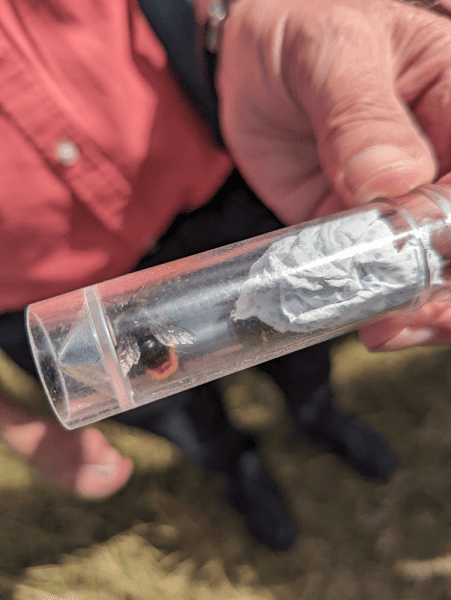
A second walk at the site included a bee survey with five different species of bees were found in 90 minutes, including the Red-shanked carder bumblebee, one of Kent’s rare species. Other vital pollinating insects were also recorded including several solitary bees such as the Green-eyed flower bee, and Bee wolf. Species of moths and butterflies were also found.
Emma Lansdell, of Bumblebee Conservation Trust who works for Kent County Council as Kent’s Plan Bee Officer, said: “The diversity and wildlife importance of the grassland and scrub habitats of Foreness Point benefit from the management carried out by Thanet District Council, with help from local volunteers. It is a beautiful and valuable site for biodiversity and pollinators.
“In the short time we had to survey the area at the event, through the enthusiasm of the local people attending, its value was demonstrated by the range and numbers of bumblebees and other insects recorded.
“Foreness Point is vital for providing a well-managed and flower-rich sanctuary and stepping-stone, connecting with other important locations along the north Kent coast – one of the UK’s hotspots for bumblebees.
“The conservation and careful management of places such as Foreness Point is critical for the future of essential pollinators – so that their populations don’t just survive but thrive.”
For more information about bees visit www.bumblebeeconservation.org

